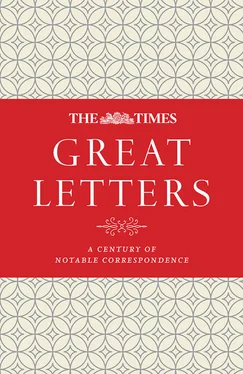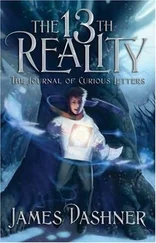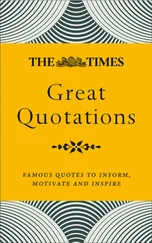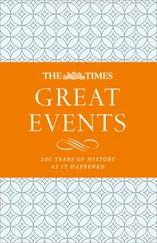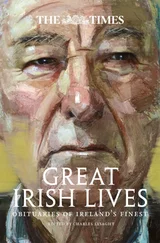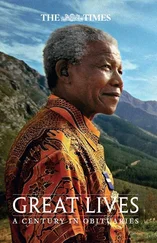I had looked about for a good place from which to take a lying down shot, and, having found a flat rock with a nice slope, lay down. My knees — bare, as I was in “shorts” — were on the ground at the edge of the stone.
Having wriggled about until I was in a comfortable position, and after having sighted the bear, I concluded it was not good enough to risk a shot at that long range, so sat back on my “hunkers”.
To my very great surprise and fear, there was a snake coiled, sitting up and watching me from the very place in which my left knee had been pressing into the ground, and still well within striking distance of my knee! It made no effort either to strike or get away while I remained still, but when I sprawled backwards it made off.
When I had killed it with a stone, I found that it was a very good 26in. specimen of the Himalayan pit viper (Ancistrodon Himalayanus). The height up would be somewhere between 10,000 ft. and 11,000 ft., and it was, as I have already said, a cold day, with a thin rain falling every now and again; but as my left knee must have been actually pressing upon the snake, it was fortunate that it was a “cold” snake with which I had had to deal.
I am,
T. H. SCOTT
United Service Club, Simla.
* * * * * * *
Mr MacDonald’s Honorary Degree
8 June 1926
Sir, Since the recent unfortunate occurrence may easily be misinterpreted outside, or even inside, this University, may I express what I know to be the feeling of others also, from the point of view of one who has twice voted for Mr MacDonald’s party at General Elections, but who would probably have abstained from voting either way on the question of his degree?
A memorial has been circulated in Cambridge deploring that this incident will embarrass, or even destroy, the convention of offering honorary degrees to politicians as such, apart from any direct services which they may have rendered to learning, letters, or art. Some of us, on the other hand, while deeply regretting this incident on other grounds, would welcome that result, and rejoice that some good, at least, had emerged from the present evil. Many, even among Mr MacDonald’s political opponents, have the greatest admiration for what he did, as Foreign Minister, in the cause of this country and of world-peace. They heartily regret that, practice in these matters having been what it has been, the first break in that practice during the last few years should seem to imply personal discourtesy to Mr MacDonald. But they cannot agree with the memorialists in branding the small group of determined opponents as persons whose political intolerance humiliates this University; they feel that this would come perilously near to denying the right of conscientious objection to all persons whose objections we ourselves do not happen to share.
Is there any real way out of this difficulty, so long as universities are in the habit of offering Doctorates in Law to politicians or soldiers as such? It is argued that the honour is here offered not to the politician but to the distinguished servant of the Crown, ex officio. If that were clearly understood on all sides; if it were generally known that the Prime Minister is thus to be honoured automatically, while others must take their chance of an adverse vote, this would certainly remove the misgivings felt by many at the present moment. Although an honour is certainly somewhat lessened by being automatic, yet such a clear understanding would relieve us from our present attempt to fly in the face of nature, and to combine the advantages of free will with those of absolute obedience to rule. We should be a very dead University if there were not strong differences of political opinion, accentuated by the present crisis.
Is it not a contradiction in terms to say that we offer degrees to politicians qua politicians, yet without reference to their politics? At least, this is contrary both to reason and to practice in normal cases, where the scholar, the littérateur, and the artist are chosen with the directest and most explicit reference to the value of their performances in scholarship, literature, or art. There are men here who joined in a similar public protest against Lord Randolph Churchill’s degree; this did not prevent Lord Randolph from receiving his degree on a majority vote. It is as certain as anything can be that Mr MacDonald would have had a sweeping majority; to doubt this would be to suggest, by that very doubt, the strongest possible justification for the opposers’ action. In the absence of absolutely clear understandings and precedents, this matter could not possibly have been emptied of all political significance. Some people (as things are at this moment) would have found political significance in the unopposed grant of a degree; even more will find political significance in the fact that it was opposed. Therefore (to repeat my earliest question in a different form), must not a politician be always ready to face a politician’s chances?
If universities deliberately intend that a certain studied gesture, when made to a politician, should mean something essentially different from that identical gesture towards a scientist, then ought it not to be understood beforehand, beyond any possibility of misconception, that this offer of a degree is simply an automatic sequel to the King’s offer of the Premiership?
Yours, &c.,
G. G. COULTON
Cambridge University had been debating whether to award the customary honorary degree to Ramsay MacDonald, the Labour leader, after he became Prime Minister.
Some dons took issue with his opposition to the First World War and his recent encouraging of the General Strike. MacDonald eventually let it be known he did not want the honour. Nearly 60 years later, Oxford would find itself in the same position – see page
* * * * * * *
The Yale’s Horns
15 June 1926
Sir, A few years ago, when the King’s Beasts were placed on the bridge over the moat leading to the gateway at Hampton Court Palace, I was distressed beyond measure at the effigy of the Yale 1. Both its horns were directed backwards! I drew the attention of the late Lord Harcourt to this on more than one occasion, and he was genuinely vexed and said that something must be done. But judging by a picture postcard I have recently received, nothing has been done.
My distress and grief have been increased by the action of those who are responsible for restoring the King’s Beasts on the outside of the Royal Chapel at Windsor, for here again the Yale has both horns pointing backwards. The Dean of Windsor kindly lent me for a day or two a little book which clearly shows this appalling lack of appreciation of what a Yale really is. For it is in the very essence of a Yale to have one horn pointing forward over the nose and the other horn pointing backwards. I have traced the history of the Yale back to the fourth or fifth Egyptian dynasty, back to the old kingdom, nearly 3,000 years bc. One finds them repeatedly throughout Egyptian art. Herodotus describes them as ỏπισθονóμοί, because their horns curve forward in front of their heads so that it is not possible for them when grazing to move forward, as in that case their horns would become fixed in the ground. Aristotle gives a similar account. Pliny describes their horns as mobile, so that should the front horn be injured in a contest the horns are swivelled round and the hinder horn now comes into action. But in spite of Pliny’s uncritical mind and unbridled fancy, he could hardly have invented the Yale. At the present time certain of the domesticated cattle in the great territory of the Bahr-el-Ghazal, to the south of the White Nile, have their horns trained by the natives, one to project forward and one to project backwards.
One of the Canons of Windsor states that the new King’s Beast on the outside of the Royal Chapel was copied from one in the interior of the chapel. Should this be the case, those who have been or are responsible for the King’s Beasts at Windsor are doubly guilty, for they are misleading the public not only without but within the walls of the sacred edifice. It is impossible to test the accuracy of this statement owing to the present reparations to the building. A distinguished archaeologist in the neighbourhood of Windsor who has been kind enough to inspect for me the false Yales on the outside of the chapel, writes that “we can do little but mourn.” But surely that is a counsel of despair. At Hampton Court Palace, and still more on or in the Royal Chapel at Windsor, under the very shadow of Royalty, we might at least expect a certain degree of historical and heraldic accuracy in such matters as the King’s Beasts, and the horns of the Yales should be set right.
Читать дальше
